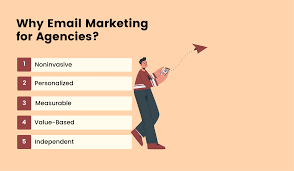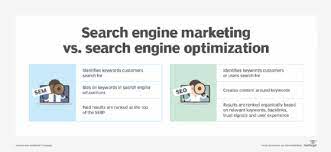The Power of PPC Digital Marketing
Pay-Per-Click (PPC) digital marketing is a powerful tool that businesses can use to reach their target audience and drive conversions. In today’s competitive online landscape, having a strong digital marketing strategy is essential for success, and PPC advertising is a key component of that strategy.
What is PPC Digital Marketing?
PPC digital marketing involves placing ads on search engines and websites and paying a fee each time the ad is clicked. This model allows businesses to reach potential customers who are actively searching for products or services related to their business. With PPC advertising, businesses can target specific keywords, demographics, locations, and more to ensure their ads are seen by the right audience.
The Benefits of PPC Advertising
There are several benefits to using PPC advertising as part of your digital marketing strategy:
- Immediate Results: Unlike organic search engine optimization (SEO), which takes time to see results, PPC advertising can generate immediate traffic to your website.
- Targeted Reach: With PPC advertising, you can target specific audiences based on factors such as keywords, location, device, and more, ensuring your ads are seen by the right people.
- Measurable Results: PPC campaigns provide detailed data and analytics that allow you to track the performance of your ads in real-time. This data can help you make informed decisions about your marketing strategy.
Tips for Successful PPC Campaigns
To make the most of your PPC campaigns, consider the following tips:
- Keyword Research: Conduct thorough keyword research to identify relevant keywords that will attract your target audience.
- Compelling Ad Copy: Write engaging ad copy that entices users to click on your ads and visit your website.
- Landing Page Optimization: Ensure that your landing pages are optimized for conversions to maximise the effectiveness of your PPC campaigns.
In conclusion, PPC digital marketing is a valuable tool for businesses looking to increase their online visibility and drive conversions. By implementing a well-planned PPC strategy and continuously monitoring and adjusting your campaigns, you can achieve significant results and grow your business in the competitive online marketplace.
Essential FAQs: Understanding and Optimising PPC Digital Marketing
- What is PPC digital marketing?
- How does PPC advertising work?
- What are the benefits of using PPC for digital marketing?
- How can businesses measure the success of their PPC campaigns?
- What is the difference between PPC and SEO?
- How can businesses choose the right keywords for their PPC campaigns?
- What factors influence the cost of a PPC campaign?
- What are some common mistakes to avoid in PPC advertising?
- How often should businesses monitor and adjust their PPC campaigns?
What is PPC digital marketing?
PPC digital marketing, short for Pay-Per-Click digital marketing, is a strategic online advertising method where businesses pay a fee each time their ad is clicked. This model allows businesses to place targeted ads on search engines and websites, reaching potential customers who are actively searching for products or services related to their business. With PPC advertising, businesses can control their budget, target specific audiences based on various factors like keywords and demographics, and measure the performance of their campaigns in real-time. PPC digital marketing is a powerful tool that helps businesses increase their online visibility, drive traffic to their websites, and ultimately boost conversions.
How does PPC advertising work?
PPC advertising works on a simple yet effective model where advertisers pay a fee each time their ad is clicked. When a user enters a search query related to the advertiser’s keywords, the search engine displays relevant ads in the sponsored section of the search results page. Advertisers bid on specific keywords to have their ads displayed, and the position of the ad is determined by factors such as bid amount and ad relevance. When a user clicks on the ad, they are directed to the advertiser’s website, and the advertiser pays the search engine a predetermined amount for that click. This pay-per-click model allows businesses to target their audience effectively, track their campaign performance in real-time, and achieve measurable results for their marketing efforts.
What are the benefits of using PPC for digital marketing?
When it comes to digital marketing, utilising Pay-Per-Click (PPC) advertising offers a multitude of benefits. One of the key advantages of using PPC for digital marketing is the ability to generate immediate results. Unlike organic methods like SEO, PPC campaigns can drive instant traffic to your website, helping you reach your target audience swiftly. Additionally, PPC allows for highly targeted reach, enabling businesses to tailor their ads based on specific criteria such as keywords, location, and demographics. This targeted approach ensures that your ads are seen by the right audience, increasing the likelihood of conversions. Furthermore, the measurable nature of PPC campaigns provides valuable data and analytics that allow for real-time tracking and optimisation, empowering businesses to make informed decisions and maximise their marketing efforts effectively.
How can businesses measure the success of their PPC campaigns?
Businesses can measure the success of their PPC campaigns through various key performance indicators (KPIs) that provide valuable insights into the effectiveness of their advertising efforts. Metrics such as click-through rate (CTR), conversion rate, cost per acquisition (CPA), return on ad spend (ROAS), and quality score can help businesses evaluate the performance of their PPC campaigns. By analysing these metrics, businesses can determine the impact of their ads, identify areas for improvement, and make data-driven decisions to optimise their campaigns for better results and return on investment.
What is the difference between PPC and SEO?
When considering the difference between PPC (Pay-Per-Click) and SEO (Search Engine Optimization) in digital marketing, it is important to understand that both strategies serve distinct purposes. PPC involves paying for ads to appear on search engine results pages or websites and paying a fee each time the ad is clicked. On the other hand, SEO focuses on optimizing website content and structure to improve organic search engine rankings without paying for clicks. While PPC offers immediate visibility and control over targeting, SEO aims for long-term sustainability and credibility in search engine rankings. Both PPC and SEO are valuable components of a comprehensive digital marketing strategy, each with its own strengths and benefits for businesses seeking to enhance their online presence and reach their target audience effectively.
How can businesses choose the right keywords for their PPC campaigns?
When it comes to selecting the right keywords for their PPC campaigns, businesses need to conduct thorough keyword research to identify terms that are relevant to their products or services and are likely to be used by their target audience in search queries. It is important for businesses to consider the search volume, competition level, and relevance of each keyword to ensure that they are targeting terms that will attract qualified leads. Additionally, using tools such as Google Keyword Planner and analysing competitor keywords can provide valuable insights into which keywords are most effective in driving traffic and conversions. By choosing the right keywords for their PPC campaigns, businesses can increase the visibility of their ads and maximise their ROI.
What factors influence the cost of a PPC campaign?
The cost of a PPC campaign is influenced by several key factors that businesses need to consider when planning their digital marketing strategy. Factors such as the competitiveness of keywords, the quality score of ads, the relevance of landing pages, and the target audience’s location and device preferences all play a significant role in determining the cost of a PPC campaign. Additionally, bidding strategies, ad scheduling, and budget allocation can also impact the overall cost of running a successful PPC campaign. By carefully analysing and optimising these factors, businesses can effectively manage their PPC campaign costs while maximising their return on investment.
What are some common mistakes to avoid in PPC advertising?
When it comes to PPC advertising, there are several common mistakes that businesses should avoid to maximise the effectiveness of their campaigns. One common mistake is neglecting keyword research, which can result in targeting the wrong audience or overspending on irrelevant keywords. Another mistake is having poorly optimized landing pages that do not align with the ad copy, leading to a high bounce rate and low conversion rates. Additionally, failing to track and analyse campaign performance can prevent businesses from making data-driven decisions to improve their PPC strategy. By avoiding these common mistakes and implementing best practices, businesses can enhance the success of their PPC advertising efforts and achieve better results.
How often should businesses monitor and adjust their PPC campaigns?
Businesses engaged in PPC digital marketing should regularly monitor and adjust their campaigns to ensure optimal performance and results. The frequency of monitoring and adjustments can vary depending on factors such as campaign goals, budget, competition, and industry trends. However, as a general guideline, businesses should aim to review their PPC campaigns at least once a week to track key metrics, assess performance, identify areas for improvement, and make necessary adjustments. By maintaining a proactive approach to monitoring and adjusting PPC campaigns, businesses can maximise the effectiveness of their advertising efforts and achieve better outcomes in the competitive online landscape.



